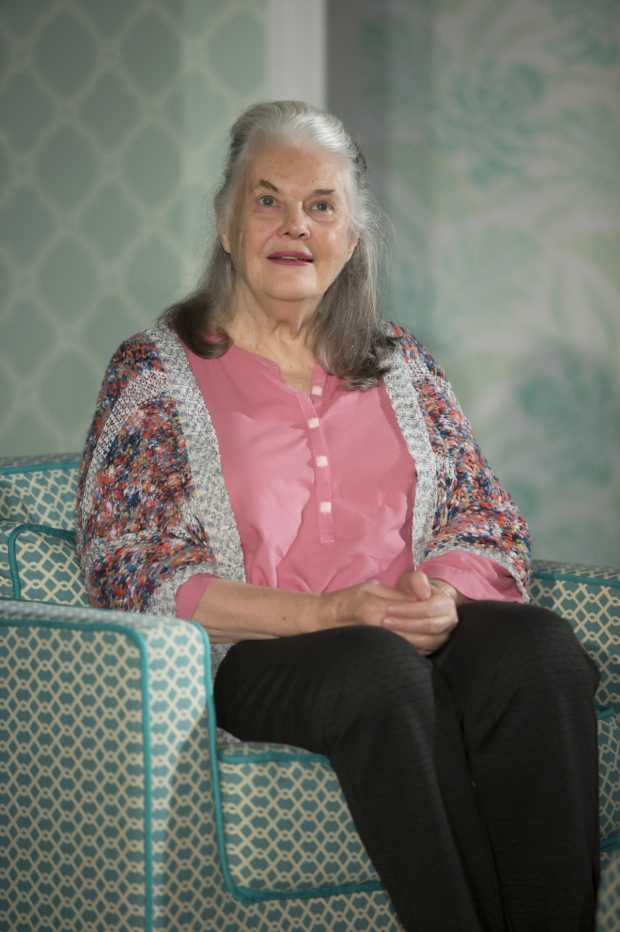“Marjorie Prime,” a new feature film written and directed by Michael Almereyda, is a thoughtful and painstaking exploration of loss, memory and aging filtered through science-fiction. The story revolves around Marjorie, a prickly woman succumbing to dementia in an ambiguously near future, portrayed by 87-year-old theater veteran Lois Smith. Regular chats with her husband Walter (Jon Hamm) can help revive her memory to some degree, but there’s a catch. Walter is a holographic simulation, or “Prime,” of her deceased partner and can only provide her with the sometimes-conflicting memories that others feed him. This premise opens up complex questions about the nature of grief, memory loss and family.
Marjorie is cared for by her daughter Tess (Geena Davis) and son-in-law Jon (Tim Robbins). Tess is both wary of her holographic father and envious of the affection her distant mother showers on the simulation. Jon plays both sides, sympathizing with his wife’s frustrations but quietly supplying Walter Prime with memories to increase the realism of his impersonation.
The film is based on a play by Jordan Harrison, and the film’s theatrical origins are largely evident. The film takes place almost entirely in Marjorie’s expansive beach house and the cast is primarily limited to Marjorie, Walter, Tess and Jon. The story is dialogue-centric, consisting of a string of conversations between the various family members on their complicated past and relationships and how these are affected by their memories and shared loss. Anyone looking for a scary sci-fi flick about a hologram impersonating a human will be disappointed, though the rather excitable score suggests a horror element that never fully materializes. The film’s pacing is patient and painstaking as it delicately sketches out the complex dynamics between the quartet of characters.
In a time in which the nature of fact is being questioned, the theme of the fallibility and sometimes intentional rewriting of memory feels especially relevant. When Walter Prime informs Marjorie that they were engaged after a viewing of “My Best Friend’s Wedding,” she is unimpressed by his unsentimental description of the movie’s plot. “Let’s say we saw ‘Casablanca’ in an old theater with velvet seats,” she suggests. “Then, by the next time we talk, it will be true.” Her prediction comes to pass. When Walter Prime later tells her they were engaged after watching “Casablanca,” she smiles trustingly.
When the play was written in 2014, Harrison may not have realized how painfully relevant this intentional revision of reality would be to future audiences bombarded with lies, ‘fake news’ and ‘alternative facts.’ Marjorie toys with her own recollections in significant ways, refusing to share a family tragedy with Walter Prime and consequently forgetting it herself, but that does not make the truth go away.
Ignoring something horrifying while hoping that it will be forgotten does not require a hologram or progressing dementia—just a disregard for fact and faith in the fickle attention spans of the average citizen. In the current political climate, the pliability of memory is less tragic and more frightening than the film might have intended.
Perhaps layering political allegory over this quiet, self-contained film does it a disservice. Lois Smith is painfully believable as a formerly independent, confident woman slowly succumbing to the indignities of age and dementia. Watching her struggle to connect with her husband, whose holographic replacement is just a little too detached to be believable, and her daughter, who is painfully aware that her ability to resolve their difficult relationship is slipping away, is compelling and heart wrenching. Memory loss is common, and loss is universal. “Marjorie Prime” taps into this painful reality with insight and compassion.







